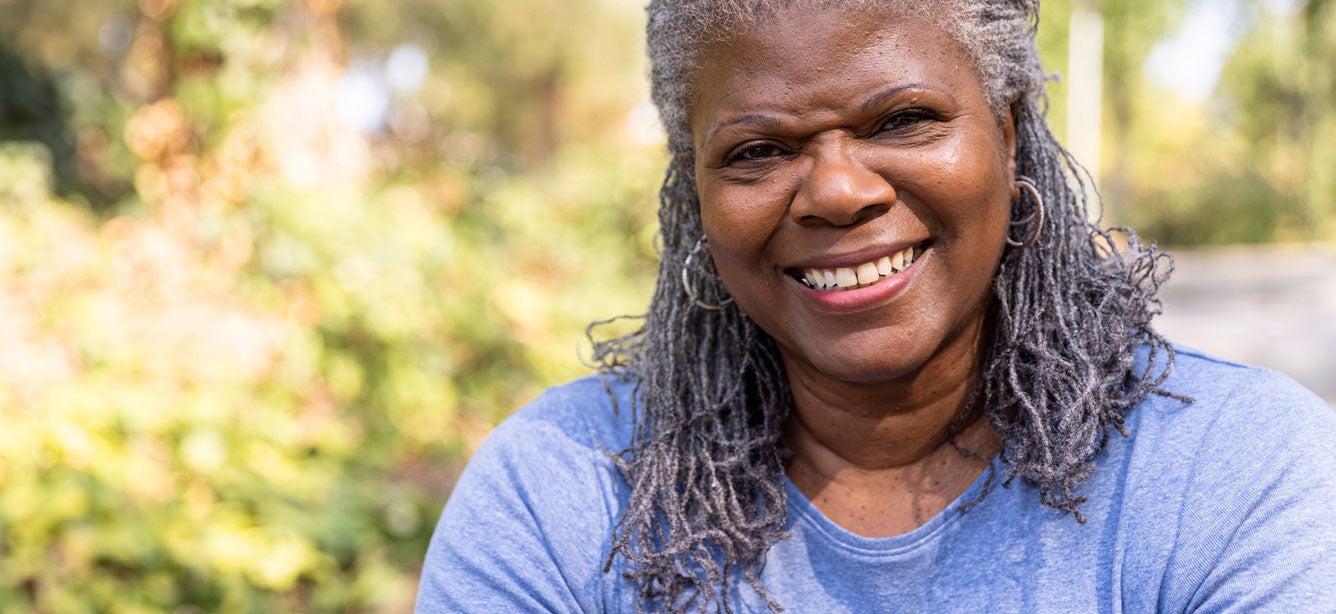
Related Topics
Nearly 100 million Americans are living with obesity,1 including 39% of adults age 60 and older.2 And rates of this chronic condition are only rising. Obesity is linked to more than 200 serious health issues, including heart disease, diabetes, high blood pressure, and strokes. It’s also a major risk factor for COVID complications.
If you’re living with obesity, you should know treatment and help are available. Older adults (and their caregivers) should feel empowered to take action to improve their physical and mental health. Below are five steps we can take collectively to improve obesity care for older populations.
How can we promote better care for older adults living with obesity?
- Recognize obesity as a chronic disease: Obesity impacts more than 2 in 5 Americans.1 It’s a chronic condition associated with increased risk of falling, sleep apnea, diabetes, hypertension, and many other health problems. Yet, despite being officially recognized as a disease by the American Medical Association in 2013, obesity continues to be saddled with negative misperceptions. Often, this stigma–not science–shapes how older adults are treated, both medically and generally among their social circles. Learn how you can reinforce scientific findings and help create more awareness in order to stave off the stigma associated with obesity.
- Fight against weight bias: Did you know only one U.S. state–Michigan–makes it illegal to discriminate based on weight? Some U.S. cities like San Francisco and Binghamton, New York, have passed legislation preventing weight discrimination. Bias against overweight and obese people occurs in large and small ways every day, negatively impacting health and quality of life for all people with obesity. Bias against patients with weight issues can make a health care provider less kind, supportive, and compassionate—which compromises the level of care they deliver. While changing deeply embedded attitudes about obesity will take time, you can take action now. Contact your local or state legislator and urge them to enact laws that ban weight-based discrimination. Ask them to initiate or support legislation that prohibits weight bias.
- Promote obesity prevention strategies: Repeating the phrase, “eat less and move more” is not a sufficient prevention program for obesity. As a society, we must continue to develop a full portfolio of science-based obesity prevention programs—and then make those proven programs readily available to all. Millions of older Americans living with obesity deserve access to the highest standard of care and scientifically proven treatments for prevention.
- Create access to obesity care for all: Most diseases and illnesses have numerous options for treatment. Yet obesity care remains piecemeal and fractured, and is often dependent on your ZIP code or employer’s health plan. Obesity care also remains out of reach for tens of millions of older Americans because Medicare fails to recognize obesity as a serious disease. This creates a gap in the full continuum of care for all older adults living with obesity. It’s time to recognize obesity as a serious, chronic disease so we can build a holistic approach to obesity prevention and management.
- Demand more science-based obesity treatments: We have all seen the ads for snake oil treatments claiming you can hack your metabolism to lose 50 pounds in a month. Successful and safe obesity care and weight management requires a combination of science-based treatment options, community strategies, and comprehensive continuums of care. Meanwhile, if you’re an older adult living with obesity, there are safe and effective anti-obesity medications. These can be combined with exercise to provide added support when conventional weight loss approaches are not enough. A balanced, holistic treatment plan can help improve your mood and outlook while empowering you to achieve and maintain a healthy weight.
Good health and happiness are things we all deserve, at every age. These are just five ways you can take active role in creating a supportive environment and promoting better care for yourself. The key is to call attention to these issues, stay engaged, and demand action in ways that make a difference for you and others living with obesity.
Did you know Americans now have an Obesity Bill of Rights? Find out more by visiting right2obesitycare.org.
Sources
1. Centers for Disease Control and Prevention (CDC). Adult Obesity Facts. May 14, 2024. Found on the internet at https://www.cdc.gov/obesity/adult-obesity-facts/index.html
2. CDC National Center for Health Statistics. Obesity and Severe Obesity Prevalence in Adults: United States, August 2021–August 2023. September 2024. Found on the internet at https://www.cdc.gov/nchs/products/databriefs/db508.htm



